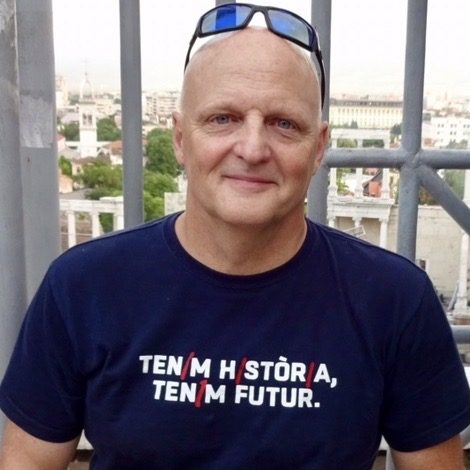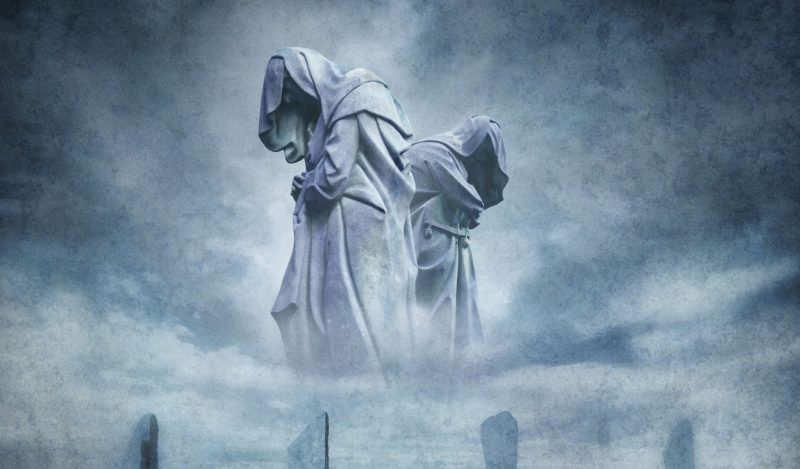A big story in the hockey world in recent days centers on the Boston Bruins’ decision to offer, and then rescind, a contract to promising 20-year-old defenseman Matthew Miller.
Miller was drafted in the 4th round of the 2020 NHL draft by the Arizona Coyotes, who subsequently renounced their rights to the player when two journalists from the Arizona Republic reported the player had been convicted at age 14 in an Ohio juvenile court of serially abusing a developmentally disabled fellow student of color.
As a result of the same stories, apparently spurred by testimony given by the victim and his family, Miller was stripped of his hockey scholarship at the University of North Dakota.
Two years later, after talking with Miller and his agent the Bruins management decided that Miller was worthy of a second chance.
However, after a fierce media/social media storm ensued—in the midst of which NHL commissioner Gary Bettman announced that he would have the last word on deciding who would be eligible to play in the NHL—the Bruins rescinded the recently signed contract, saying they had discovered unspecified “new information” about Miller in recent days.
And thus ended yet another of our era’s online morality plays, dramas wherein the social capital of personal aggrievement, magnified by the vicarious expressions of outrage emanating from largely anonymous online mobs, invariably rules the day.
I’ve got nothing against morally-infused personal outrage. Indeed, I’ve got plenty of it. Moreover, I am well aware of the role it has played in regulating behavior in social collectives throughout history.
But I also know that one of the things that made the emergence of modern democracies possible was the subordination of mob-style moral outrage, and its twin brother personal vengeance, to the rule of law.
Is the application of the law often imperfect? Absolutely. Does the restitution it offers, when it indeed does offer restitution at all, almost always fall well short of what the victims of the injustice believe is owed to them? No doubt.
The founders of our institutions were not unaware of these limitations. But they believed that flawed justice such as this was infinitely superior to the alternative, which they correctly understood to be a society “regulated” by some mixture or another of personal vendettas and mob rule.
I have read the news reports about what Matthew Miller did to Isaiah Meyer-Crothers during the course of what is said to be several years of bullying, allegedly starting when both were 7 years old. The incident most commonly adduced by the press to exemplify this sad period of harassment—Miller’s getting Meyer-Crothers to lick a push-pop that had been dipped in urine—is repellent beyond belief. And I know that if I were Isaiah and/or his family I’d have a very hard time ever forgiving him for these aggressions and for the way it no doubt damaged the disabled youngster’s psychological well-being.
But does it mean that Miller, himself a probable victim of some sort of abuse or neglect to engage in such sadism at such a young age, has to be a social pariah for life, unable to exercise his skills in the workplace? This, when a veritable host of professional athletes who have done far worse things as adults (e.g. Ray Lewis, Craig MacTavish) have been breezily pardoned and welcomed back into the playing and/or management ranks. Apparently it’s much easier to go after a 20-year-old kid than an established star whose jersey you bought for yourself or your kids.
To pose the above question is not, as so many eager and zealous moralists in the comments section of the oh-so-liberal Boston Globe sports section and other places would have us believe, the same as “excusing what Miller did” or being in any way heedless of the serious damage that his childhood/adolescent actions had on Meyer-Crothers. Nor does it imply that Matthew Miller’s transgressions were just a case of “boys being boys” or that you believe he has been reborn as a moral angel.
As is usually the case, things are far more complex than that.
It is my understanding that Matthew Miller was remitted to the existing system of juvenile justice, did whatever putatively proportional penance was levied on him by the system, discharged, and allowed to get on with his life.
And in keeping with the fundamental precepts of juvenile justice, rooted in the belief that no one should be condemned in perpetuity for acts committed before the onset of full adult moral reasoning, the records were sealed. And as far as I’ve been able to tell, he has not been remitted to the justice system since that time.
When he was drafted in 2020, someone, however, violated the spirit of this principle and brought up Miller’s juvenile transgressions and contacted the victim who expressed his dismay at the possibility that Miller might be afforded the possibility of going on to a life of wealth and fame. “Everyone thinks he’s so cool that he gets to go to the NHL, but I don’t see how anyone can be cool when you pick on someone and bully someone your entire life.”
This is a perfectly understandable sentiment, one that is expressed a lot more tamely than what I might have said were I in his same position.
However, the bigger question is if, in a supposed society of laws, these more than legitimate feelings about seeing your one-time tormentor experience recognition and the possibility for success can and should be used as a means of imposing—through media-social media-business collusion—a de facto form of double jeopardy on someone who has theoretically paid his debt to society?
Do we really want to live in a society where, if you can recruit a posse of infuriated and media-savvy moralists you can supersede not only the intended effects of the law, but perhaps more importantly in the long run, the possibilities of healing in both the aggressor and his victim? Do we really want to effectively lock two young people into the tormentor-victim dynamic for the rest of their lives?
According to this logic, prison education programs like the one I taught in for many years, and where I experienced the most vibrant and meaningful classroom interactions of my teaching career, should not exist.
Rather as someone conscious of some of the heinous things that my would-be students had done, I should, according to the logic at play in the Miller case, have haughtily rebuffed my colleagues when they asked me to join the effort, telling them in no uncertain terms that “I don’t in any way wish to support or dignify ‘animals’ such as these.”
I would then proudly tell everyone that would listen about how I had strongly enunciated and defended my clear and unbending moral principles in the face of requests to glorify criminals and their crimes.
Again, is this really a model of moral comportment that we want to advance and normalize?
Sadly, the answer of many—apparently secure in the belief that their immaculate children could never, ever be agents of evil—to this question appears to be “yes.”
Indeed, wasn’t it a simple variation of this dynamic of stigmatize, dehumanize and shun—rooted in the idea that evil is always pure and located elsewhere—that psychologically underwrote the worst repressions of the High Covid era?
As bad as this practice of eschewing the prospect of healing in favor of preening self-regard and continued aggrieved tension is, it may not even be the worst part of the new trend toward widespread armchair moralizing.
Arguably more troubling is the damage such practices do to what might be called our society’s “economy of concern.” Like most everything about us, our ability to pay attention to the world outside our heads is limited. The kingpins of the new cyber economy know this, and are laser-focused on getting us to give as much of this scarce and extremely valuable resource to them during the course of our days.
They do so most obviously to sell us things we often don’t need or intrinsically want. But they also do so to keep us from thinking about how the social structures they have a huge say in shaping do or do not serve our long-term interests.
How?
By encouraging us to spend cognitive, emotional and moral energies on people and things that ultimately lie well beyond our own radius of personal control.
Like, for example, on young hockey players who made ugly mistakes as a child and early adolescent or, conversely, on the truly heart-wrenching stories of his victim.
Will fulminating online about the young hockey player’s past really solve any of our real problems?
Obviously not.
But it will take energy away from addressing big and structurally-imposed violations of basic rights happening today.
Every minute spent talking today about a single child-on-child abuse case legally resolved, however imperfectly, 6 years ago is a minute not spent addressing the cruelties and injustices of government-on-child abuse taking place today, much of it on the name of “fighting Covid.” outrages eloquently and passionately denounced here by Laura Rosen Cohen .
In effect, when we allow ourselves to be swept up into object-free campaigns of moral virtue-signaling about past personal cases, we are giving those in big entrenched centers of power much more space to enact and consolidate enveloping systems of citizen abuse and social control. And if you think these entrenched centers of power are beyond thinking of how to stimulate diversionary campaigns of small-bore outrage, then it’s time you wake up to the new realities of our world.
A half-century ago, certain activists declared that now “The personal is the political.” It was an alluring soundbite and like so many alluring soundbites overly simplistic. Should we strive to always inject the personal concerns of the citizenry into policy-making discussions? Of course.
That said, there is, and must always be, as Hannah Arendt reminded us, a barrier between our private and public selves as well as an acceptance, as excruciatingly difficult as it might be to do, of the unfortunate role of unrequited tragedy in the lives of us all.
Do I wish that the pain of Meyer-Crothers could have been eliminated by Ohio’s system of juvenile justice? I obviously do. But sadly, that’s not how it works. A public justice system is not designed to eliminate pain, but rather attenuate its onward march, and in this way, provide a possible opening for healing.
The internet has, for better or worse, created new forms of social organization and political mobilization. As we have seen in the Miller case, the Meyer-Crothers family, backed by journalists and online activists, has sought, in effect, to gain a measure of the moral payback the justice system was unable to provide them.
Is it understandable? Yes. Is it their right? Certainly.
Is using these new methods of mobilization to effectively override the legal system and create what are effectively vigilante forms of retribution good for the future of our society and culture?
Probably not.
While it may make a lot of people feel good about themselves at the moment, it will only further corrode trust in the rule of law— a shift that always favors the powerful—and take valuable energy away from the urgent task of fighting massive and systematic government and corporate assaults on our dignity and freedom.
Published under a Creative Commons Attribution 4.0 International License
For reprints, please set the canonical link back to the original Brownstone Institute Article and Author.









